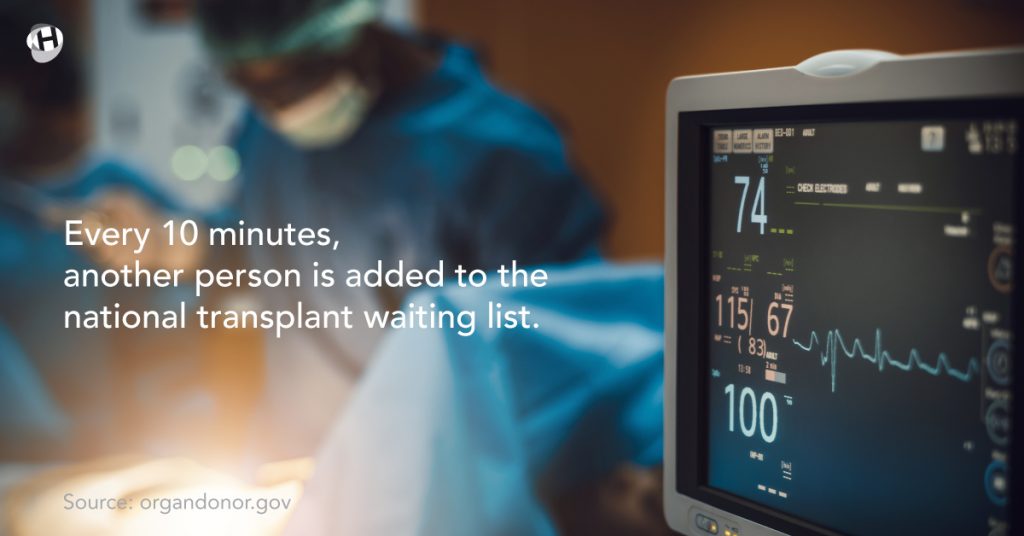We all have it inside ourselves to save lives. With two simple words—organ donor—on your driver’s license, you can be a lifesaver.

United Network for Organ Sharing (UNOS), a nonprofit organization that manages the U.S. organ transplant system, notes that one organ donor can save eight lives. And there is a strong need for donors, according to organdonor.gov:
- More than 116,000 men, women, and children were on the national transplant waiting list as of August 2017
- 20 people each day die waiting for a transplant
- Every 10 minutes, another person is added to the waiting list
The number of organ donors has not kept up with the demand. Government data show that 95 percent of U.S. adults support organ donation, but only 54 percent are signed up as donors.
Why should you be an organ donor? Florida Today highlights these key benefits:
- It helps your family grieve. Many families take consolation in their loved ones’ deaths by knowing that their organs helped save other lives.
- It improves the quality of life for others. By donating your organs, you are giving others fuller lives through your generosity.
- It’s free. There is no cost to donating your organs. All costs are covered by the transplant recipient and organ recovery organization.
- It makes a difference. One of the easiest ways to make a lasting impact on the world is to become an organ donor.
Become a living donor
Become a living donor, and witness the lives you’ve improved. During 2016, only 14 percent of donations came from living donors, according to organdonor.gov. Although there are risks with any surgery, most living donors don’t experience post-surgery health issues. Living donors can donate a kidney, liver segments, a lung lobe, or portions of the pancreas.
According to Donate Life Pennsylvania, a collaborative initiative among Gift of Life Donor Program, the Center for Organ Recovery & Education, and the Pennsylvania departments of Health and Transportation, living donors must:
- Donate voluntarily
- Be in good health
- Be 18–60 years old in most cases
- Complete clinical evaluations
- Give informed consent
To become a living donor, talk with your health care provider. If you’re thinking about becoming a living donor for someone you know, contact that person’s transplant center for more information.
Become an organ donor by registering through PennDOT to add the organ donor designation to your driver’s license or photo ID. You also can add the designation when you renew your driver’s license or photo ID.
